PrAACtical Supports for Older Learners: AT Recipes for Success, Part 6
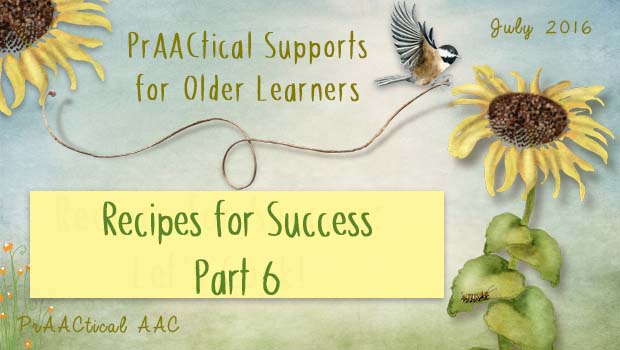
Welcome back to the PrAACtical Supports series, highlighting the work of the AT team at the Children’s Hospital of Richmond at VCU (CHoR). Meghan Reitz, an SLP who has worked at CHoR for over 3 years, returns to share activity ideas for older learners and downloadable handouts for their caregivers. She received her 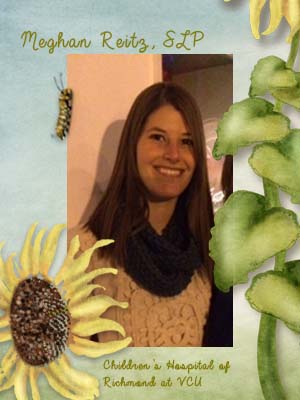 Master’s in SLP from the University of Virginia., which provides comprehensive services for pediatric healthcare. The CHoR AT Program is one of few comprehensive AT programs in Central Virginia, providing AT evaluations, equipment and training to people of all ages, enabling children and adults with disabilities to function more independently. CHoR’s AT team consists of 4 SLPs, 2 OTs, a PT, and a Therapy Practice Assistant. In addition to completing transdiciplinary evaluations and treatments, CHoR’s AT team is responsible for supporting staff and sharing AT information to five CHoR therapy centers throughout Central Virginia.
Master’s in SLP from the University of Virginia., which provides comprehensive services for pediatric healthcare. The CHoR AT Program is one of few comprehensive AT programs in Central Virginia, providing AT evaluations, equipment and training to people of all ages, enabling children and adults with disabilities to function more independently. CHoR’s AT team consists of 4 SLPs, 2 OTs, a PT, and a Therapy Practice Assistant. In addition to completing transdiciplinary evaluations and treatments, CHoR’s AT team is responsible for supporting staff and sharing AT information to five CHoR therapy centers throughout Central Virginia.
Meghan has a passion for working with the pediatric population, which continues to grow through her work at Children’s Hospital’s outpatient clinic, AT center and long term care unit. She has been a member of the AT team since 2013 and has assisted in AT Recipes for Success mini-grant program and planning Children’s first AT Symposium in the fall of 2015. She has presented at local and national conferences on education and training for AAC and conducts evaluations and family trainings for children and adults who require AT to communicate. Meg also enjoys working with a very diverse population and has created several caregiver handouts in Spanish to assist with carryover of device implementation at home. She values the importance of training and providing education to caregivers in order to empower families to target communication at home and anywhere on-the-go. In this post, Meghan shares ways to use magazines and nail polish to build core vocabulary skills.
Supporting Older AAC Users
The CHoR outpatient therapy centers serve a very diverse population that ranges from birth to age 21; however, the Assistive Technology team also evaluates and treats adults with a variety of communication disorders. Our caseloads often consist of individuals from local group homes and day support programs that require AAC. It is often difficult to “code switch” from working with school-aged children who use AAC to teenagers and adults. One of the greatest challenges about this population is determining age-appropriate or age-respectful activities that are equally as motivating for older individuals as bubbles and cars are for younger children.
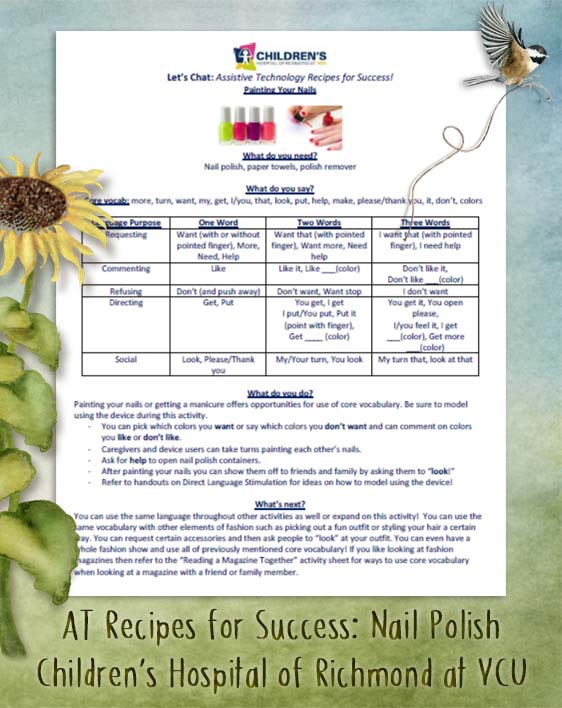
If the age of technology has taught us anything, it is that computers and tablets are extremely motivating for almost all ages as their uses are expansive. We have developed a “Recipe for Success” handout to address device use that can be incorporated with all ages and all activities that are completed on the computer, such as listening to music, opening internet explorer, or turning the volume up or down. The focus of core words remains with models for “turn, help, more, need, open, close, on/ off, go, stop,” etc. As motivating as it is there are also restrictions with technology since not every family or group home has access to it. Therefore, we have created a large variety of games and activities that can be used with an older population depending on their motivations. Our list ranges from creating Madlibs, to looking through a magazine, as well as painting your nails or the Magic 8 Ball. One of our favorites is the “Cooking Recipes for Success”, including picture supports for making quick and easy recipes with patients, such as cheese pizza and chocolate milk, which we have adapted from Speaking of Speech. Activities as such incorporate life skills so that the older AAC user can begin to generalize device use into real ADL.
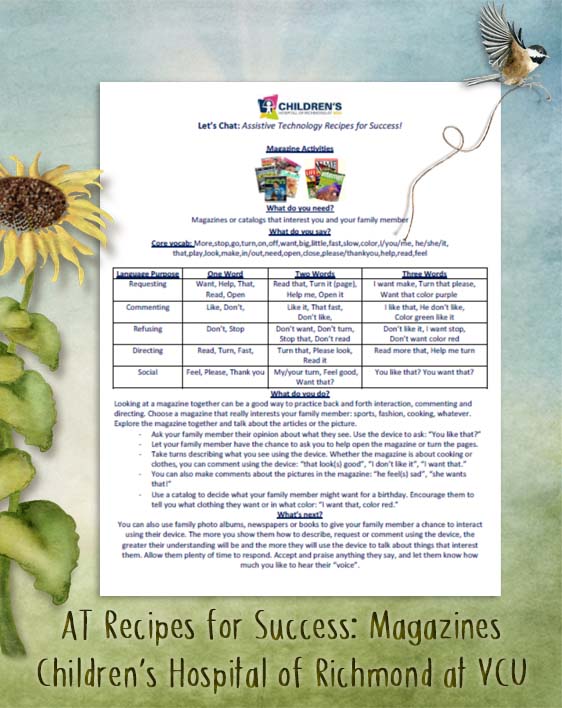
Another challenge we had to overcome for AAC training of older individuals is that they often have multiple caregivers. The AT team decided that using the “Recipes for Success” program provided a way for the main caregiver to train other caregivers, so that these individuals have consistent modeling and access to their communication system regardless of who is caring for them on a particular day. Although training all caregivers within a group home proves difficult, using the “Recipes for Success” program can assist with reaching beyond the caregivers who attend the appointment. Written supports paired with take-home activities are beneficial as caregivers can discuss the evaluation or treatment, but also provide detailed instructions to their staff for carryover.
You can download a copy of these materials for nail polish and magazines here. Thanks to Meghan and the whole AT team at ChOR! Stay tuned for two additional activity ideas and caregiver handouts in the next edition of this series.
Filed under: Featured Posts, PrAACtical Thinking
Tagged With: download, older learners, resources
This post was written by Carole Zangari

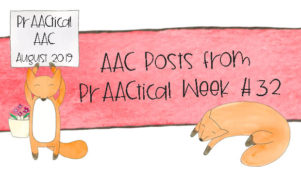
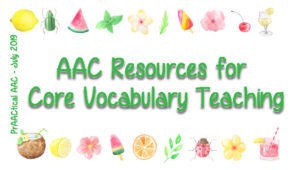
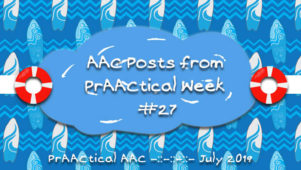
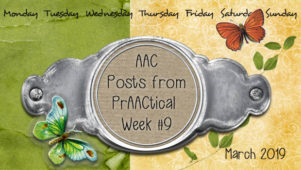
2 Comments
Thanks for posting! There is a real need for implementation ideas with older language learners.
These are great ideas! I am always hunting for engaging, age-appropriate activities for my adult transition program students. Thank you!